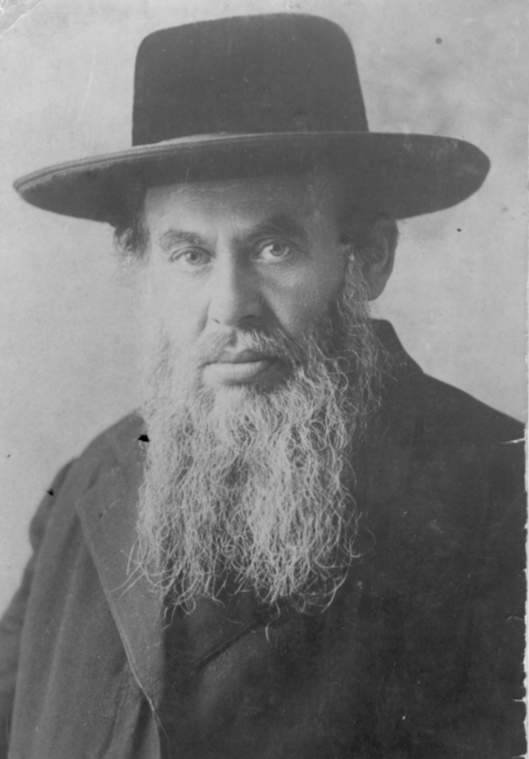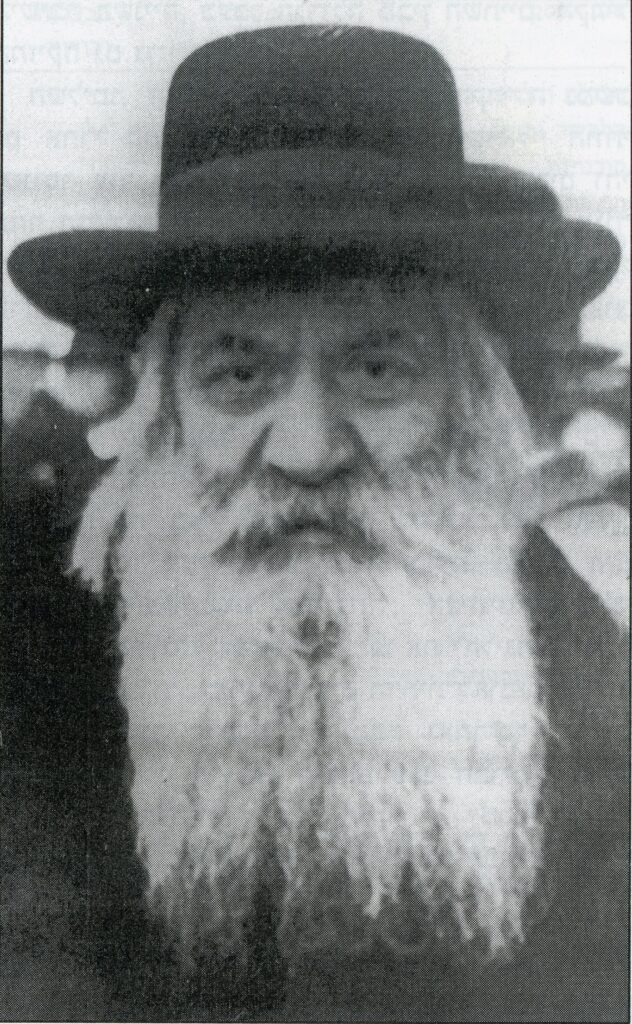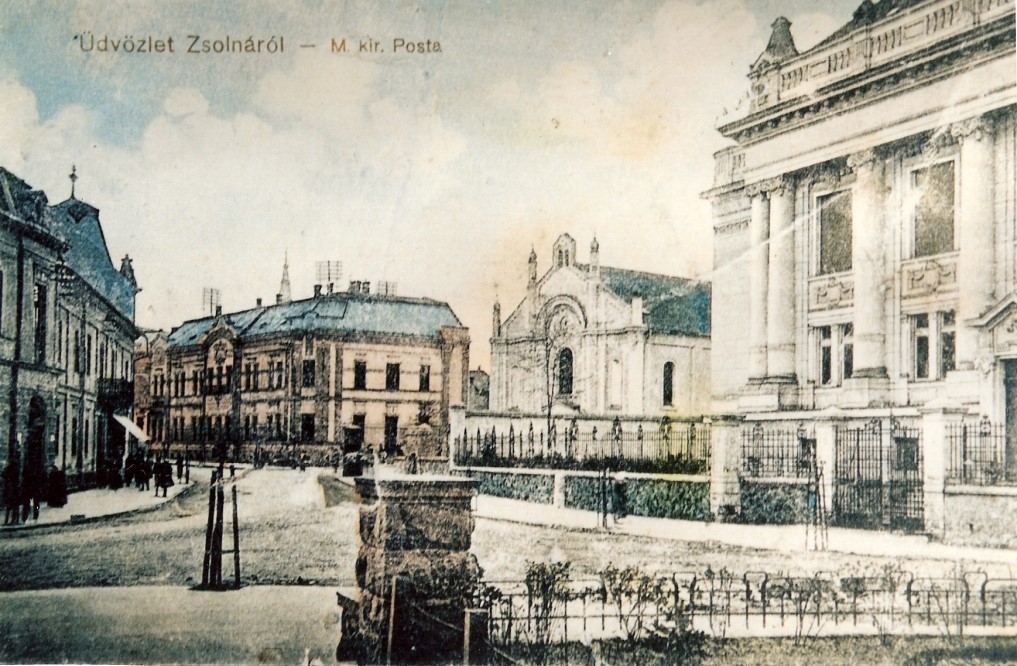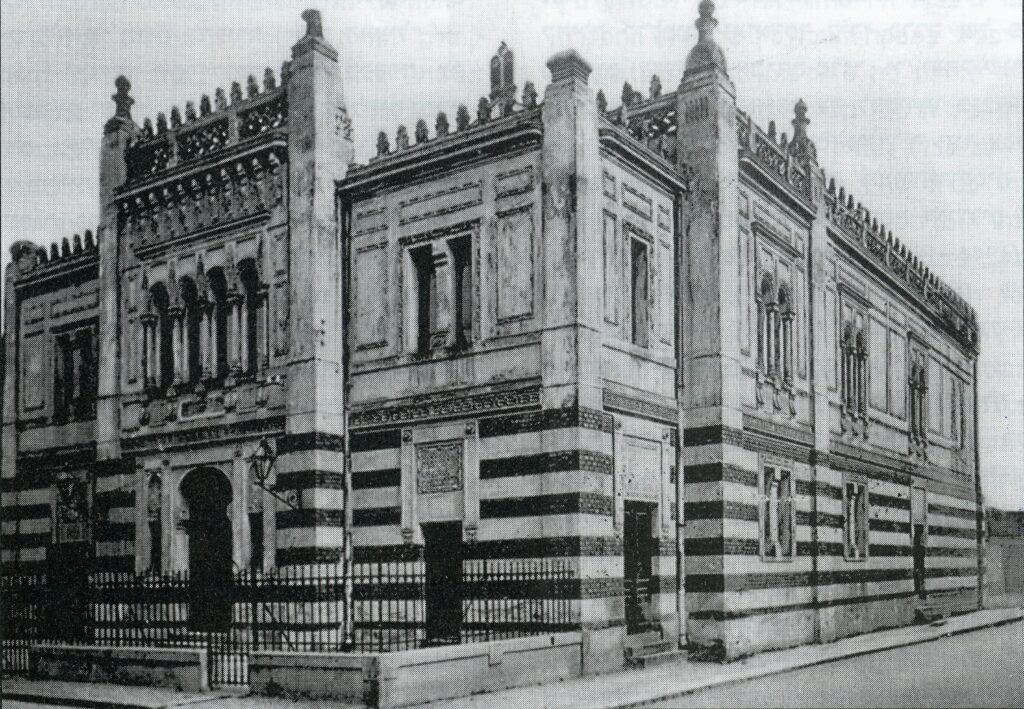“Avraham, Avraham!” And He Said, “Here I Am”
(Genesis 22:11)
The Sacrifice of Avraham, a Ger Tzedek (Righteous Convert) from Slovakia
An emotional testament, marking 80 years since the liquidation of glorious Slovakian Jewry

Rabbi Yissachar Shlomo Teichtel
At the end of last week’s Torah portion, Chayei Sarah, when I read about the passing of Avraham our forefather, who passed at an elderly and fulfilled aged, I was reminded of another Avraham who was killed 80 years ago, but was not old, yet was fulfilled. This is the story of a ger tzedek by the name of Avraham Klein, who went to death with self-sacrifice, joy, and faith.
The holy Avraham Klein (“Avraham ben Avraham”), the son of Avraham our forefather, sanctified the Name of G-d in his life and in his death, and here is his heart-wrenching story, from the testimony of the holy genius Rabbi Yissachar Shlomo Teichtel z”l (cited in the book “Emuna B’Kur HaShoah” by his son, Rabbi Menachem Mendel. For those who love words, I will leave the excerpt in the author’s endearing style. I translated some of the testimony from Yiddish).
How Beautiful was His Lot
How beautiful was the lot of that ger tzedek, who lived in the village of Topolchan (Topolcany, Slovakia) and in his childhood, while still a gentile boy, he served here as an apprentice to a Jewish butcher, and all the people of the city knew and remembered him from that time, and at that time he was like the rest of the gentile boys born of gentile parents…

Rabbi Avraham Weiss, the last chief rabbi of Topolcany
One day, he disappeared from here and went to Munkacz and stayed there for several years, and a spirit of purity entered him, to enter under the wings of the Divine Presence, and the rabbinical court in the aforementioned city converted him, and our holy rabbi, the “Minchat Eliezer,” circumcised him, and he was given the Jewish name “Avraham Klein,” and he was 27 years old when he left home, so the man who he served told me, and from then on he lived as a ger tzedek, and married a G-d-fearing wife and raised sons who studied Torah in yeshivas, and he sanctified the name of G-d.
The rabbi continued and told:
And I will recall a fine conversation from that ger tzedek, which I overheard about a year and a half ago, when the exile in our country was already in effect, when I was in the city of Pressburg for some purpose, and on my return I met the ger tzedek at the station, and I entered into a conversation with him about the situation we found ourselves in, and he told me in these terms:
Rabbi! I imagine our situation now, like someone who needs a serious operation. The operation was indeed successful, but various complications arise… and to survive this, one needs a strong heart. If the patient has a strong heart, he will overcome the complications and recover. But whoever has a weak heart, G-d forbid, will not survive. Yes, at this time, G-d Almighty is performing a major and difficult operation. There are complications, and only those who have a strong heart full of faith in G-d will survive. Whoever is not strong in faith, G-d forbid, will be lost in the tangle of troubles. We must ask G-d Almighty that even if He takes everything from us, G-d forbid, but, please, leave the faith that He will strengthen for us.
And the rabbi told:
Trustworthy witnesses told me about him, who were with him at the time, and heard his words from his mouth. When the Jews in the Topolcany camp were being sent to “Zilien” (Zilina, which is the assembly point for all the camps), to take them to Poland, and that ger tzedek was also among the Jews of the city of Topolcany, and they took him with them to the city of Zilien and placed him in the “Zammel Lager” (collection camp) there, among the other Jews, until they were put in the cattle cars going to Poland, and sometimes they would remain there for a few days until the time came for the journey, because there they would select and sort those who would go to Poland and those who would remain here. Suddenly a Hlinka Guard (Slovakian policeman) came and called out (forcefully, loudly) the name of the ger tzedek, by the family name he still had from when he was a gentile, “so and so will be uprooted from the group and should come,” and the ger tzedek came to them, and the guard said to him: “We do not recognize you as a Jew, you are a member of our people, and you and your household can go back to your home in peace.” Such were the words of that Hlinka Guard, at which the ger tzedek opened his mouth and shouted loudly: “What? Peter, Ivan and Vitach (typical gentile names in Slovakia), will they send me home? No! No! G-d will bring me home. I am a Jew! I am like the other Jews! I am going with them to Poland and I am going to suffer together with them. Vitach will not send me home, only G-d himself!“

The synagogue in Zilina
And he continued and said:
“Do you think, brothers, that being a Jew is only when you sit over a glass of beer, over a juicy and good goose? Only then is this being a Jew? No, no! To suffer with Jews when they suffer, that is what is called being a Jew. I am going to Poland with joy because this is what the Creator of the World wants, he will find me there (in Poland) and bring me back home together with the rest of my Jewish brothers.”
And the rabbi completed his testimony: Until here are his words, which he shouted with great passion, which will display to all who hear the greatness of his love for G-d and his people, and blessed is he and blessed is his lot that he was able to sanctify the name of G-d in public when he could have saved himself from distress…
Slovakian Jewry
The glorious Slovak Jewry drank the poisoned cup during the Holocaust years in two “shots”. Of the countries under Nazi influence or control during World War II, Slovakia was among the first from which Jews were deported to the extermination camps. The main phase of the deportation of Slovak Jews began on March 26, 1942 and ended on October 20 of that year. During this period, 57 train shipments departed, carrying nearly 58,000 Jews. 19 trains were sent directly to the Auschwitz concentration camp, and the remaining shipments were destined for the ghettos of the Lublin region.

The synagogue in the city of Topolcany, the capital of the Topolcany district in the Nitra region of western Slovakia, was built in 1900 and destroyed in 1945
In 1943–1944, there was a lull in the deportation of Jews from Slovakia to the extermination camps. The Jews who still remained in Slovakia were concentrated in three labor camps (Sered, Vyhne, and Novaky), where they had relative freedom. However, under pressure from the Reich ambassador to Slovakia, Hans Ludin, on the Slovak president, Germany was assured that as part of the “solution of the Jewish problem,” these Jews would also be transferred to concentration camps in Poland by April 1944.
Various factors, including the Slovak Uprising, delayed the implementation of the plan, but when the uprising was suppressed, the remaining Jews were concentrated in the Sered camp and from there the transports resumed. From October 1944 to March 1945, 13,500 Jews were sent from the Sered camp. The first five transports went to Auschwitz, and the rest went to Ravensbrück, Bergen-Belsen, Sachsenhausen, and the last transports to Theresienstadt.














